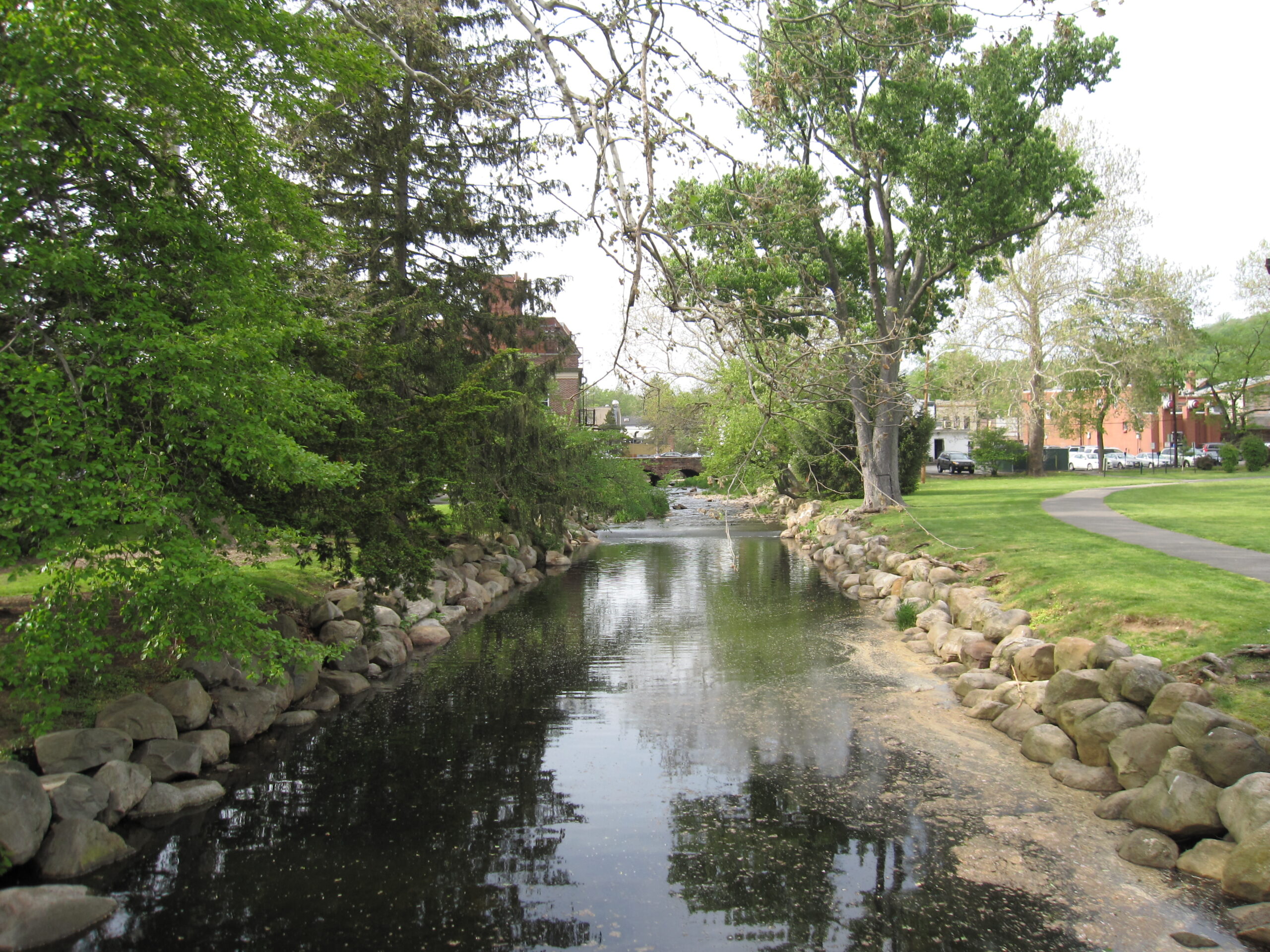
Taylor Park in Millburn, NJ
By Aalok Bhatt
Like many American towns, Millburn (Essex) has grown more environmentally conscious over the years. In 2019, the organization Java’s Compost made a presentation on the importance of at-home composting at the Millburn library. The same year, student groups and community members successfully lobbied for a ban on single-use plastic bags in town. And after the town participated in an awareness campaign on the importance of native plants and pollinator-friendly gardens, a patch of land opposite Taylor Park was allotted to native flora.
Green initiatives are growing fast. But this bed of environmental action did not form on its own. Sustainable initiatives require two key parties: leaders who organize and communities who enthusiastically engage.
Dr. Radhika Iyengar is a Research Scholar at Columbia University’s Center for Sustainable Development and a Millburn resident. One of the town’s sustainability leaders, she works with other local activists and the Millburn Environmental Commission and has been instrumental in founding the Millburn Climate Action Group to implement town-wide programs. In discussing her work, Dr. Iyengar explained that climate activism requires a healthy balance: “Climate activism is a juncture between understanding global perspectives and global environmental challenges while also understanding what those local environmental and sustainability challenges are.” She emphasized that no one person can be the changemaker—it requires a community of like-minded individuals acting together.
One notable example is the Millburn Thrift Store, a local initiative that recycles clothes. Founded by a few Millburn residents, the group frequently holds sales where people can donate, buy, or exchange gently used clothes. They have held special sales around holidays—a costume sale for Halloween, an Indian clothing sale around Diwali time, and even a sports equipment sale.
Another initiative, founded by Iyengar and Ms. Vanita Gangwal, is Millburn for Monarchs. Inspired by the work of conservationist Douglas Tallamy, the group focuses on supporting monarch butterflies, which transit through Millburn on their annual migration to Mexico. According to the New Jersey Department of Environmental Protection, “The monarch has been on a steady decline over the past decade,” so Millburn for Monarchs encourages residents to plant milkweed and other local plants in their yards. Seeds are distributed to residents at local events, in public schools, and at the town library. As opposed to the less-sustainable grass lawns, this native flora provides a welcome pit stop for monarchs and other pollinators. The group also urges homeowners to stop using traditional pesticides, insecticides, and gas-powered blowers.
These initiatives have grown thanks to the power of social media and local outreach. Millburn Thrift Store, Millburn Climate Action, and Millburn for Monarchs promote and organize events on Facebook and have dedicated Whatsapp groups where residents can exchange ideas and offer each other advice. According to Ms. Priya Patel, a member of Millburn’s Environmental Commission, it is difficult to measure the exact impact of these groups in Millburn, but she believes that “they have been successful in raising environmental awareness amongst a small but mighty subset of the community.”
In this spirit of sustainability, Millburn has also seen town-wide composting efforts improve in recent years. According to the composting company Eco Safe, un-composted food waste is usually packed so tightly in a landfill that it can never decompose, as oxygen cannot reach it. However, if that waste is composted, it can act as a protective layer for soil, allowing it to absorb and retain more water and nutrients than it would have on its own. This means more growing plants and more absorbed CO2, helping the natural regeneration cycle. As an individual, “When you separate your waste, an average of 425 [pounds] of food scraps/year will become compost instead of waste in a landfill” (EcoSafe).
Patel is also the founder of the Millburn Food Waste Recycling program, which she piloted in 2021 with 50 households. This program allows and encourages residents to separate their food waste from their regular trash. Said Patel, “Millburn currently sends all of its municipal solid waste to the incinerator in Newark, a poor community of color. This did not seem like a fair or just way to deal with all the garbage we generate, so I wanted to find a way to divert as much of that waste out of our waste stream as possible. I focused on organic waste, like food scraps.”
For those wondering how to implement these or similar initiatives in their communities, Iyengar explained that the first step is to “read a lot, get a couple of books, and start your journey on learning about sustainability.” She also suggests looking into your community and joining different eco-friendly groups. As she sees it, it starts by being a part of the community—when citizens lead with that aim, they grow to learn what their local issues are, what needs to change, and how they can actively help.
Students can also play a key role in building sustainable communities. Said Iyengar, “Students should really advocate and raise their voice against climate injustice” and be a part of the “general green or eco-friendly dialogues that are going on in the communities.” She encourages students to attend local environmental committee/commission meetings to understand what is going on and then brainstorm ways to create change.
For her, this process “started with learning from others and reading a lot,” but there are other ways to galvanize young people. Chief among them is engaging them in these topics and then listening to what they have to say. In 2019, Iyengar brought the Eco-Ambassador Program to Millburn to engage students in climate activism. Piloted by the Center for Sustainable Development at Columbia University, the program has grown steadily each year, working on projects related to microplastics in water and energy efficiency and learning from international climate scientists and activists. Programs like this have had a cascading effect: with youth activism on the rise, the Millburn Board of Education has added an environmental challenge to its annual STEAM month competition.
In just a few years, Millburn has rolled out many sustainability initiatives thanks to a small but vibrant eco-conscious community. The actions of a few determined people can go a long way in creating awareness at a grassroots level.
Radhika Iyengar is a Trustee of CivicStory.

Aalok Bhatt, a sophomore at Rutgers University, is an Eco Ambassador with the Center for Sustainable Development (CSD) at the Earth Institute at Columbia University.
